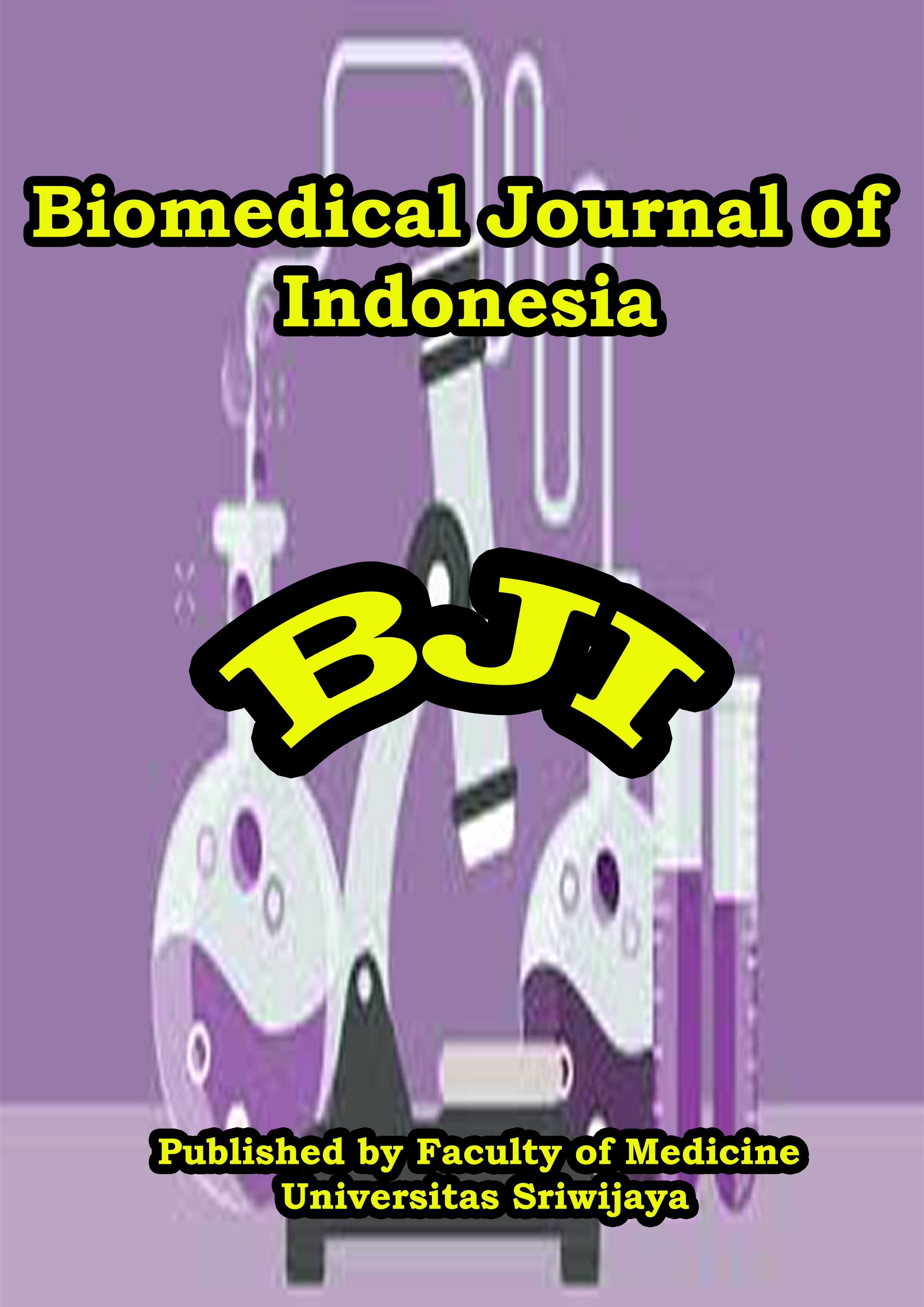Factors Influencing Medication Adherence in Patients with Type 2 Diabetes Mellitus in Japan
Main Article Content
Introduction. Diabetes mellitus (DM) is a chronic metabolic disease marked by persistent hyperglicemia. Type 2 diabetes mellitus (T2DM) is increasingly prevalent in Japan, affecting approximately 10% of adults with diabetes, according to the Ministry of Health, Labor and Welfare in 2020. Maintaining medication adherence is critical for T2DM management and complications prevention. This review aimed to synthesize factors influencing medication adherence in T2DM patients in Japan. Methods. This systematic review followed PRISMA-P guidelines, using the keywords The keywords “risk factors", "medication adherence", "diabetes mellitus", and "Japan”. After applying inclusion and exclusion criteria, five cross-sectional studies were selected for analysis. Results. Medication adherence among Japanese T2DM patients ranged from 65% to 85%. Positive factors linked to higher adherence included higher family income, knowledge of drug effect, absence of complication, increased number of medications, frequent healthcare utilization, structured lifestyle perception, and physical functionality. In contrast, variables such as gender, education level, and type of medication showed no significant influence in multiple studies. The use of validated scales highlighted correlations between high adherence and improved HbA1c outcomes. Conclusion. Medication adherence is multifactorial, driven by clinical and socio-behavioral determinants. Knowledge and perception-based interventions, combined with lifestyle modification and simplified therapy regimens, may enhance adherence in Japanese T2DM patients.
2. Ministry of Health Labour and Welfare Japan. National Health and Nutrition Survey 2020. Tokyo; 2021.
3. Sugimoto M, Tsukitome H, Okamoto F, Oshika T, Ueda T, Niki M, et al. Clinical preferences and trends of anti-vascular endothelial growth factor treatments for diabetic macular edema in Japan. J Diabetes Investig. 2019;10(2):475–83.
4. Kuroda N, Kusunoki Y, Osugi K, Ohigashi M, Azuma D, Ikeda H, et al. Relationships between time in range, glycemic variability including hypoglycemia and types of diabetes therapy in Japanese patients with type 2 diabetes mellitus: Hyogo Diabetes Hypoglycemia Cognition Complications study. J Diabetes Investig. 2021;12(2):244–53.
5. Nakamura I, Maegawa H, Tobe K, Uno S. Safety and Effectiveness of Ipragliflozin for Type 2 Diabetes in Japan: 12-Month Interim Results of the STELLA-LONG TERM Post-Marketing Surveillance Study. Adv Ther. 2019;36(4):923–49.
6. Yoneda M, Honda Y, Ogawa Y, others. Comparing the effects of tofogliflozin and pioglitazone in non-alcoholic fatty liver disease patients with type 2 diabetes mellitus (ToPiND study): a randomized prospective open-label controlled trial. BMJ Open Diabetes Res Care. 2019;9(1).
7. Araki E, Goto A, Kondo T, Noda M, Noto H, Origasa H, et al. Japanese Clinical Practice Guideline for Diabetes 2019. Diabetol Int. 2020;11(3):165-223.
8. Kameda T, Kumamaru H, Nishimura S, Kohsaka S, Miyata H. Use of oral antidiabetic drugs in Japanese working-age patients with type 2 diabetes mellitus: dosing pattern for metformin initiators. Curr Med Res Opin. 2020;36(5):749–56.
9. Nonogaki A, Heang H, Yi S, van Pelt M, Yamashina H, Taniguchi C, et al. Factors associated with medication adherence among people with diabetes mellitus in poor urban areas of Cambodia: A cross-sectional study. PLoS One. 2019;14(11).
10. Underhill LJ, Williams KN, Cordova-Ascona L, Campos K, de las Fuentes L, Huffman MD, et al. Addressing Hypertension and Diabetes through Community-Engaged Systems (ANDES) in Puno, Peru: rationale and study protocol for a hybrid type 2 effectiveness and implementation randomized controlled trial. Trials. 2024;25(1):747.
11. Uno-Eder K, Satoh-Asahara N, Hibiya M, Uno K, Uchino T, Morita K, et al. Understanding impacts of COVID-19 restrictions on glycemic control for patients with diabetes in Japan. J Diabetes Metab Disord. 2023;22(2):1695–703.
12. Oe Y, Nomoto H, Cho KY, Yokozeki K, Ono T, Miya A, et al. Efficacy and safety of oral semaglutide in older patients with type 2 diabetes: a retrospective observational study (the OTARU-SEMA study). BMC Endocr Disord. 2024;24(1):124.
13. Chen C, Meng S, Wu X, Ciren W, Shen J, Zeding Z, et al. Vitamin D deficiency and the risk of diabetic retinopathy in patients with type 2 diabetes in Tibet: a cross-sectional analysis. BMC Endocr Disord. 2024;24(1):139.
14. Lin CC, Li CI, Liu CS, Lin CH, Yang SY, Li TC. Association of carotid atherosclerosis markers with all-cause and cardiovascular disease-specific mortality in persons with type 2 diabetes: a causal mediation analysis with glucose variation. Acta Diabetol. 2024;61(5):657–69.
15. World Health Organization (WHO). Adherence to Long‑Term Therapies: Evidence for Action. Geneva; 2003.
16. American Diabetes Association. Standards of Medical Care in Diabetes—2024. Diabetes Care. 2024;47(Suppl 1).
17. Japan Diabetes Society. Treatment Guide for Diabetes 2022–2023. Tokyo; 2022.
18. Zhang L, Chen Y, Wang Q, Liu F, Huang Y. Technological functionality and system architecture of mobile health interventions for diabetes management: a systematic review and meta-analysis of randomized controlled trials. Front Public Heal. 2025;13:1549568.
19. Nishimura R, Kato H, Kisanuki K, Oh A, Hiroi S, Onishi Y, et al. Treatment patterns, persistence and adherence rates in patients with type 2 diabetes mellitus in Japan: A claims-based cohort study. BMJ Open. 2019;9(3):e025806.
20. Shahabi N, Hosseini Z, Ghanbarnejad A, Aghamolaei T. Predictors of treatment adherence in patients with type 2 diabetes: a cross-sectional study in Southern Iran based on Pender’s Health Promotion Model using structural equation modelling. BMJ Open. 2024 Dec;14(12):e091582.
21. Wakui N, Ozawa M, Yanagiya T, Endo S, Togawa C, Matsuoka R, et al. Factors associated with medication compliance in elderly patients with type 2 diabetes mellitus: A cross-sectional study. Front Public Heal. 2022;9:794315.
22. Nakajima R, Watanabe F, Kamei M. Factors associated with medication non-adherence among patients with lifestyle-related non-communicable diseases. Pharm. 2021;9(2):90.
23. Horii T, Momo K, Yasu T, Kabeya Y, Atsuda K. Determination of factors affecting medication adherence in type 2 diabetes mellitus patients using a nationwide claim-based database in Japan. PLoS One. 2019;14(10):e0223431.
24. Hashimoto K, Urata K, Yoshida A, Horiuchi R, Yamaaki N, Yagi K, et al. The relationship between patients’ perception of type 2 diabetes and medication adherence: a cross-sectional study in Japan. J Pharm Heal Care Sci. 2019;5(1):1–8.

